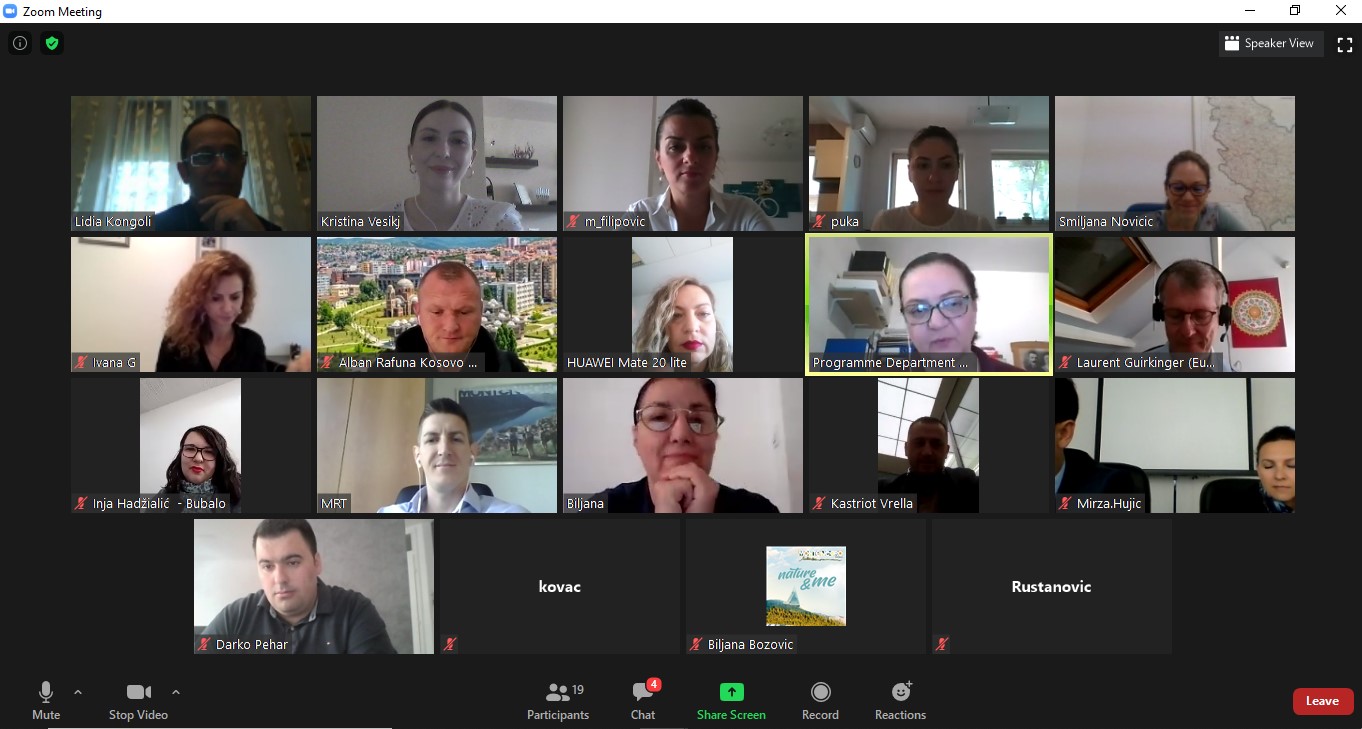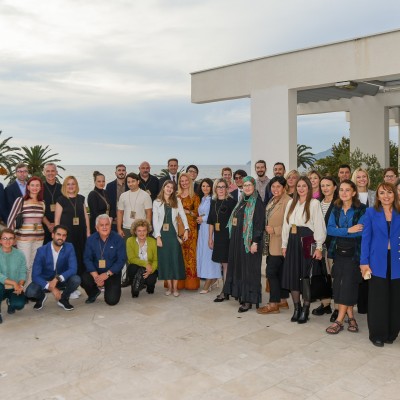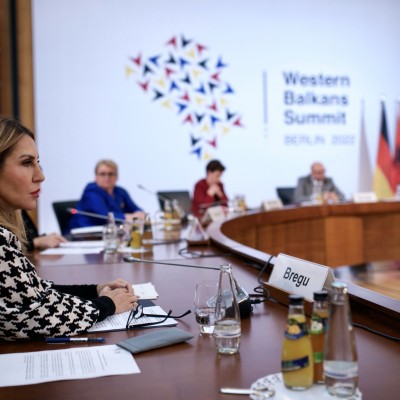Tourism in the Western Balkans: Where and How in the Times of the Pandemic?
08 June 2020

11th meeting of the Tourism Expert Group (TEG) was held online on 3 June 2020 (Photo: RCC/Kristina Vesikj)
RCC Tourism Expert Group met online to discuss current situation and the next steps in the six Western Balkan economies for recovery of travel industry that was severely hit by the global corona virus pandemic
Sarajevo – “These are very difficult times for the Western Balkans’ tourism as the consequences of the global corona virus pandemic took the highest toll on travel and tourism industries. For our region it is especially important to find the ways to support these industries and help them recover, given that tourism contributes to the region’s GDP with over 10%”, said Snjezana Derviskadic, Tourism Development and Promotion Project Leader, implemented by the Regional Cooperation Council (RCC) and funded by the European Union (EU), at the 11th meeting of the Tourism Expert Group (TEG) held online on 3 June 2020.
“11,4% of the employed people in the Western Balkans work in travel and tourism and the current situation jeopardised their jobs, not to mention the creation of new ones envisaged by the tourism development plans. Our recent survey with tourism operators in the region confirmed this. Namely, 42% of them were forced to start cutting costs and lay off some of their employees, and this is only one domino of the entire effect across the sectors related to tourism – air travel, food & catering industry, etc. Therefore, consolidated efforts to assist the sector in surviving and keeping the jobs are necessary.”
The meeting reflected on the current state of play for Western Balkans tourism industry and the course of action for a coordinated regional response to mitigate the negative impact of the crisis caused by the pandemics. The TEG also reviewed and fully supported the key findings of the Tourism Industry Perception on COVID-19 Impact survey conducted in April 2020 that reached out to travel agencies and tour operators throughout the Western Balkans.
Laurent Gurkinger from the European Commission’s Directorate-General for Neighbourhood and Enlargement Negotiations (DG NEAR) also addressed the meeting, confirming the EU commitment to the Western Balkans, and emphasized the need for even stronger cooperation and coordination in order to tackle the socio-economic crisis.
“EU is mobilising significant energy and allocating €3.3 billion to the region, primarily for the health sector but also for the overall economic recovery. Economic and investment plan will be announced in the second semester of 2020”, said Guirkinger and underlined that the tourism is a priority in regional cross border cooperation and in bilateral programmes and it is a significant part of the Regional Economic Area 2 (REA) that this under development, highlighting the need to integrate youth in the future development efforts.
TEG participants from all Western Balkan economies provided brief overview of the key mitigation measures in place or under development in their respective home economies. Information was reviewed against a backdrop of current recommendations and guidelines provided by international tourism authorities such as the United Nations World Tourism Organisation (UNWTO), World Travel and Tourism Council (WTTC) and Adventure Travel Trade Association (ATTA), with special focus on guidelines on resuming tourism activity issued by the EU. These, as agreed by the meeting participants, are to be guiding principles for development of future measures at national and regional level. Furthermore, the meeting decided to continue with cooperation and coordination through regular review and sharing of experiences. Due to the limitations of the online communication, TEG meeting is proposed to continue through a series of online sessions addressing specific issues such as joint regional promotion.
***
Tourism Expert Group (TEG) gathers representatives of the ministries in charge of tourism, national tourism boards, business representatives, regional partner-organizations and others, in order to analyse the most challenging factors to the growth of tourism in the region, and work out the means of addressing them.



